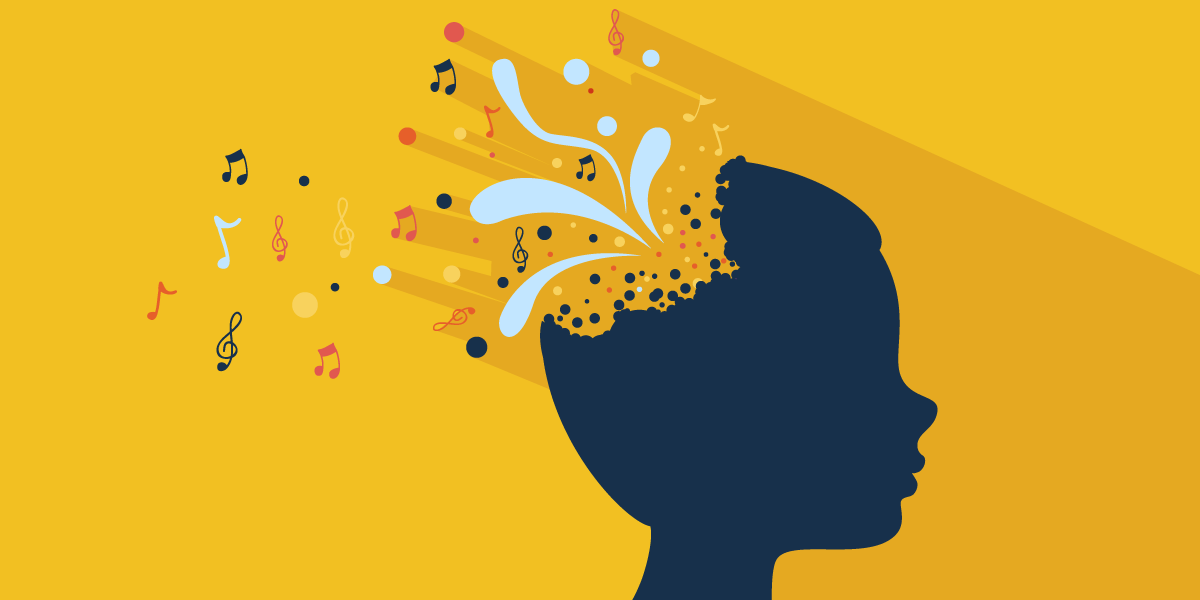
You’re at your work desk and it’s chaos all around you. Your team is under a tight deadline to finish a crucial campaign. How do you even begin to focus? Lucky for all of us there are music streaming services. We put on our noise-canceling headphones, turn up the volume, and Bam! We’re on our way to making our winning campaign.
The benefits of listening to music at work have long been disputed by many researchers. Some argue that only certain types of instrumental music, such as Mozart, have a positive cognitive effect on the brain, while heavy beats with lyrics can act as a distraction. According to a study at the University of Windsor, which tested the effect of music on software developers, those that didn’t listen to music generated the lowest quality of work and took the longest to complete the assignment. Studies have also revealed that music has the ability to make you feel calmer while performing a stressful assignment. According to the Journal of Music Therapy, listening to your favorite music lowers your perception of tension even if the music’s energetic. The most important factor is that music helps you focus–no matter what your attention span is. According to Peter Quily, an adult ADHD coach, listening to music boosts dopamine levels, a brain chemical that helps people focus.
With that in mind, we’ve come up with the perfect playlists to inspire you to take your PR career to the next level and to highlight the benefits music can bring to your everyday work life. These playlists help you get the most out of your day and create the most compelling PR campaigns for your organization.
Classical Music
One of the most frequently cited music and productivity studies is the “Mozart Effect,” which found that listening to classical music for even a short amount of time can boost “abstract reasoning ability.” The study employed 36 Cal-Irvine students that were divided into three test groups. Group One listened to Mozart, Group Two listened to a relaxation tape, and Group Three had 10 minutes of silence. After the test, all 36 students had the same test. The Mozart group had an eight-to-nine point IQ increase compared to the other two groups. A more recent study found that children in elementary school who had a music composition education outperformed students who didn’t on their reading comprehension scores.
Think classical music might be your speed? Check out this classical-influenced playlist:
Nature Sounds
According to The Journal of the Acoustical Society of America, “listening to natural sounds could enhance cognitive functioning, optimize your ability to concentrate, and increase your level of satisfaction.” Some common examples are sounds of the ocean, forest, and rivers. Google’s getting in on the action by introducing ambient sounds to help listeners focus or relax with their Google Home tech.
Spotify seems to recognize the science behind this as well, and has a variety of nature-themed playlists, like this one:
Pump-up songs
As it turns out, listening to high-power playlists increases confidence for more than just athletes before a big game. In 2014, researchers from Kellogg School of Management asked the question, “Does listening to the right kind of music make us feel more powerful and in control?” They conducted a study in which participants were asked to listen to high-power songs. After they listened to songs like Queen’s “We Will Rock You,” they were asked if they’d go first or second in a debate. Participants that listened to the high-powered playlists were twice as likely to go first than the control group.
Next time you need to pump yourself up before an interview or big presentation, check out this list:
Instrumentals
Back in 2015, Middle Tennessee State University Researchers discovered that students who listened to “sedative music” during a test scored higher than those who listened to lyrical music. A freshman who was tested was quoted in the study:
Iman Ghosh: “I listen to electronic music like techno, sometimes [I listen to] dubstep, but I only listen to music that is without words and singing, because if there’s words and singing I can’t concentrate.”
This doesn’t necessarily mean you should stop listening to lyrical music entirely, as it also depends on the “feel” of the music. A study conducted in 2002 had children ages seven to 10 listen to calm music and then aggressive music while taking a test. The results showed that calm music greatly improved their scores, while aggressive music proved to be a distraction.
In essence, listening to instrumental versus lyrical music varies by the person and situation you’re in.
If you find lyrics too distracting, you might want to try out these instrumental tunes:
“Feel good” songs
Music can stimulate our brains in the same way as food or drugs. For example, researchers at McGill University saw that when participants got the opioid-production-blocking drug naltrexone, they didn’t have as much of a positive reaction to their favorite songs as usual. This concludes that our brains naturally emit these chemicals when we listen to our favorite playlist.
As we know, “feel good” music varies from person to person, and a quick Spotify search for “Feel Good” has dozens of results.
That being said, here’s one of our favorites:
As PR tasks often require a lot of creativity, these playlists will help inspire news ideas, so you can create the best possible PR campaign and showcase your company.













